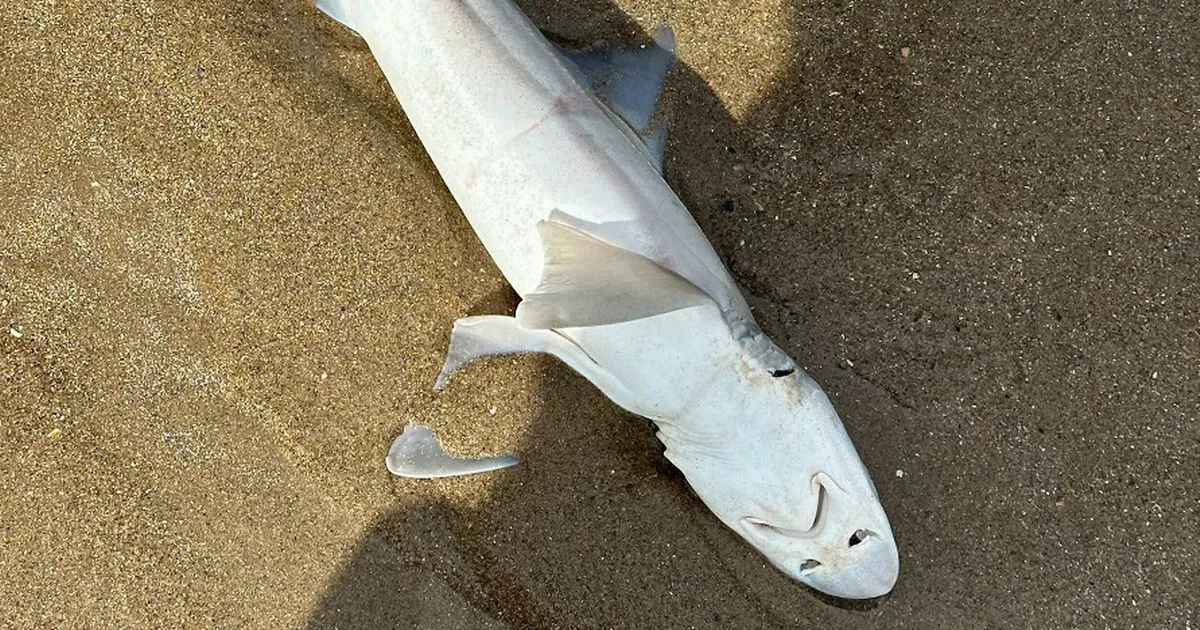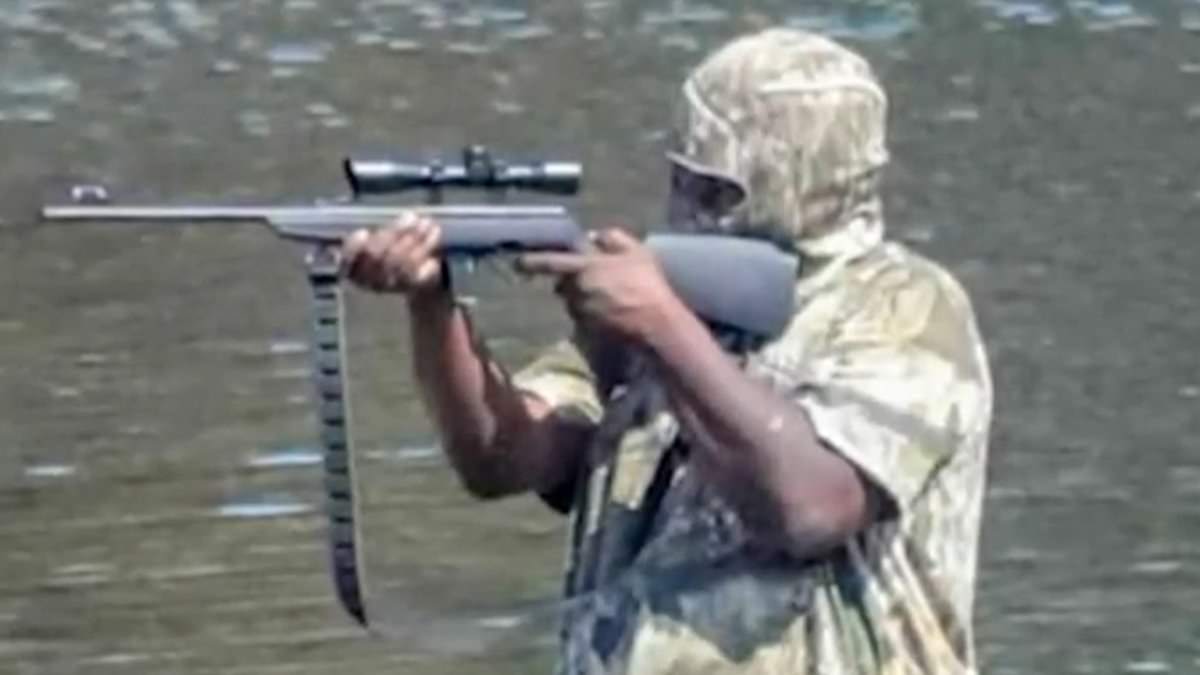By Andrew Forgrave
Copyright dailypost

People were left horrified when coming across numerous dead sharks on a beach in Conwy county. One person counted six, another totted up 10 along a short stretch of Rhos on Sea beach.
They were identified as dog sharks, commonly called smoothhounds. These are a small, harmless species of shark that mainly feed on crabs and are often found in packs.
Line nets erected off-shore were blamed for their demise and furious residents considered wading out to cut them down.
The resort’s seafront has undergone a multi-million-pound revamp and the sandy beach on which the sharks were found is now considered amongst the best in Wales. Local mum Jane Wynne was walking her Jack Russell when she spotted a carcase attracting seagulls near the new Pirates Bay golf attraction on the promenade.
It was on the high water line. “I honestly thought it was to do with the previous days gales,” she said. But, she feared it may have been caused by humans.
After receiving allegations of illegal fishing, the Welsh Government’s fisheries team investigated – but the nets had been removed by the time marine enforcement officers arrived. The team said “no nets were present on arrival” and so they could find no evidence of bylaw breaches.
A spokesperson said: “Based on the evidence available, there is nothing to indicate that any illegal fishing has occurred. Our marine enforcement officers will continue to monitor the area.” Sign up now for the latest news on the North Wales Live Whatsapp community
Shore net fishing, typically for bass, is governed by byelaws dating back to the 1960s that differ between north and south Wales. Restricted areas were set up around estuaries to protect salmon and other migratory fish by limiting net sizes and times of deployment.
These byelaws apply to part of the Conwy estuary running over to the Menai Strait. There’s another small restricted area at Llanddulas – but none at Rhos on Sea.
Continued pressures on migratory fish have prompted a rethink of the byelaws. This was given extra momentum by last summer’s discovery of two dead porpoises and three dead cormorants at Old Colwyn. The animals were found near a dried-out shore net and post mortems found evidence of entanglement with monofilament gear.
It was the first confirmed evidence of porpoise – a mother and her calve – potentially being by-caught in a shore net in Wales. Current fisheries byelaws do not cover mammals and birds, while enforcement teams say regular compliance monitoring would be “almost impossible” anyway.
The Welsh Government is considering a range of options, from a do-nothing approach to legislating for a new permitted shore-based fishery. Another option is a voluntary catch recording system in North Wales, along with enlarged restricted areas.
Fishers have reacted angrily to suggestions that the Rhos on Sea netting was not permitted. Online, one man said: “Rhos is a old fishing village the monks fished there many years ago – god forbid someone is fishing in Rhos.
“Someone is trying to make a living…. but there are people who want to cut their tools and report them to the authorities for something perfectly legal.”
Another noted that most fish eaten by the public was caught in nets. He added: “I will be working hard as a commercial fisherman to provide food for people and I wouldn’t be best pleased to find anyone tampering with my gear.”
As smoothhounds are a flaky-fleshed shark, they are an alternative to cod or haddock in fish and chips ships, where they’re known as “rock salmon” or just “rock”. After seeing the Rhos on Sea carcases, one man said: “Sad to lie dead on beach if they’re being dumped.”
In June 2023, larger numbers of smoothhounds were found scattered across Rhyl beach in Denbighshire. A few more were found near Prestatyn. Around 30 of the small sharks were counted and shore netting was suspected – but proof couldn’t be obtained because of the amount of seagull scavenging.
At the time, Gem Simmons of British Divers Marine Life Rescue said shark strandings normally consist of clusters of five and that to see more was a “cause for concern”.
Beachgoers were advised not to touch the sharks and to leave them to be washed back into the sea as a natural food source for marine organisms. Sign up for the North Wales Live newsletter sent twice daily to your inbox
Find the weather forecast where you live



